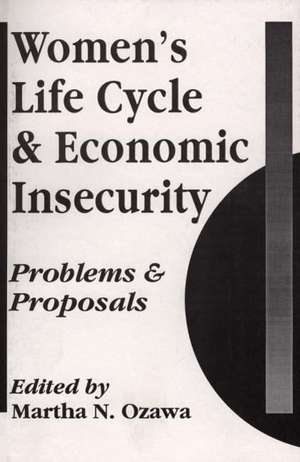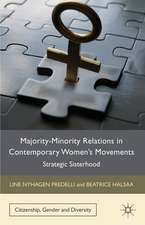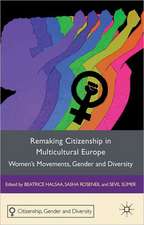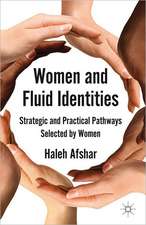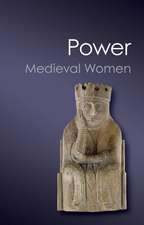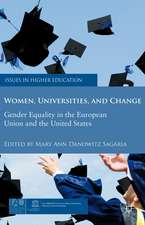Women's Life Cycle and Economic Insecurity: Problems and Proposals
Editat de Martha N. Ozawaen Limba Engleză Paperback – 31 oct 1989
... cover s] the effects of the life-cycle experiences of teenage pregnancy and childbearing, divorce, and years of widowhood on women's economic status and poverty rate (the feminization of poverty). . . . Ozawa finds a conflict between women's traditional nurturing and caring roles and the development of their earning capability. Interesting statistical tables and a selected bibliography. "Choice"
Gender, like race and ethnicity, is an increasingly important factor in assessing social policy in the U.S. For those who want to understand the role of gender in the poverty problem today, "Women's Life Cycle and Economic Insecurity" provides a splendid collection of articles containing new knowledge and fresh insights.
Sheila B. Kamerman Columbia University School of Social Work
According to a global United Nations study, women perform 66 percent of all work, but receive only 10 percent of all income and own less than 1 percent in material assets. Although the economic status of American women has been somewhat higher than that of women globally, it is increasingly apparent that the United States is facing the emerging social problem of women's economic insecurity in the midst of growing affluence. In this timely study, ten experts methodically survey every vital aspect in the life of American women, from early sex-role socialization in the home to long-term elderly care, and examine their economic implications. Ozawa's introductory chapter provides a helpful overview of the subject; her concluding chapter summarizes recommendations for change and proposes steps necessary to the establishment of economic and social equality between the sexes.
In Educational Preparation of American Women, Shirley M. Clark analyzes female socialization and discusses women in higher education: enrollment trends, degrees earned, and women faculty. James P. Smith's chapter investigates Women, Mothers, and Work and considers wage prospects. Other chapters explore teenage pregnancy: patterns, consequences, and prevention strategies; divorce and child support issues, the history and effects of inheritance, old age, and care of the elderly. The text is enhanced by twenty-five tables and eight figures that present vital statistical information, including labor force participation rates of various groups of women, data relating to children and their care, fertility, income, life expectancy, and health. "Women's Life Cycle and Economic Insecurity" presents a comprehensive assessment of the condition of women in the United States today. This groundbreaking study provides insights and statistics that will be especially useful for research in the areas of women's studies, sociology, economics, and American history.
| Toate formatele și edițiile | Preț | Express |
|---|---|---|
| Paperback (1) | 223.93 lei 6-8 săpt. | |
| Praeger – 31 oct 1989 | 223.93 lei 6-8 săpt. | |
| Hardback (1) | 437.84 lei 6-8 săpt. | |
| Greenwood Press – 31 oct 1989 | 437.84 lei 6-8 săpt. |
Preț: 223.93 lei
Preț vechi: 338.43 lei
-34% Nou
42.85€ • 44.74$ • 35.38£
Carte tipărită la comandă
Livrare economică 15-29 aprilie
Specificații
ISBN-10: 0275933482
Pagini: 242
Dimensiuni: 148 x 225 x 17 mm
Greutate: 0.33 kg
Editura: Praeger
Descriere
Gender, like race and ethnicity, is an increasingly important factor in assessing social policy in the U.S. For those who want to understand the role of gender in the poverty problem today, Women's Life Cycle and Economic Insecurity provides a splendid collection of articles containing new knowledge and fresh insights.
Sheila B. Kamerman Columbia University School of Social Work
According to a global United Nations study, women perform 66 percent of all work, but receive only 10 percent of all income and own less than 1 percent in material assets. Although the economic status of American women has been somewhat higher than that of women globally, it is increasingly apparent that the United States is facing the emerging social problem of women's economic insecurity in the midst of growing affluence. In this timely study, ten experts methodically survey every vital aspect in the life of American women, from early sex-role socialization in the home to long-term elderly care, and examine their economic implications. Ozawa's introductory chapter provides a helpful overview of the subject; her concluding chapter summarizes recommendations for change and proposes steps necessary to the establishment of economic and social equality between the sexes.
In Educational Preparation of American Women, Shirley M. Clark analyzes female socialization and discusses women in higher education: enrollment trends, degrees earned, and women faculty. James P. Smith's chapter investigates Women, Mothers, and Work and considers wage prospects. Other chapters explore teenage pregnancy: patterns, consequences, and prevention strategies; divorce and child support issues, the history and effects of inheritance, old age, and care of the elderly. The text is enhanced by twenty-five tables and eight figures that present vital statistical information, including labor force participation rates of various groups of women, data relating to children and their care, fertility, income, life expectancy, and health. Women's Life Cycle and Economic Insecurity presents a comprehensive assessment of the condition of women in the United States today. This groundbreaking study provides insights and statistics that will be especially useful for research in the areas of women's studies, sociology, economics, and American history.
